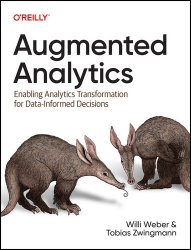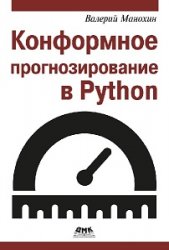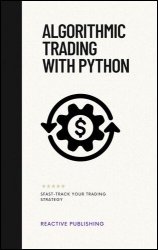 Название: Augmented Analytics: Enabling Analytics Transformation for Data-Informed Decisions (Final Release)
Название: Augmented Analytics: Enabling Analytics Transformation for Data-Informed Decisions (Final Release)Автор: Willi Weber, Tobias Zwingmann
Издательство: O’Reilly Media, Inc.
Год: 2024
Страниц: 292
Язык: английский
Формат: True/Retail PDF, True/Retail EPUB
Размер: 21.3 MB
Augmented Analytics isn't just another book on data and analytics; it's a holistic resource for reimagining the way your entire organization interacts with information to become insight-driven.
Moving beyond traditional, limited ways of making sense of data, Augmented Analytics provides a dynamic, actionable strategy for improving your organization's analytical capabilities. With this book, you can infuse your workflows with intelligent automation and modern artificial intelligence, empowering more team members to make better decisions.
Be aware: These pages cover more than just adding another forecast to your dashboard. They go deeper, presenting a complete approach to achieving analytical excellence in your organization.
When it comes to Artificial Intelligence (AI) and analytics, the explosion is almost tangible. People are starting to dream about dashboards that show the brightest futures and algorithms that change the way we work. The possibilities are endless. The shift to analytics is forcing us to reinvent the way we think, the way we work, and the way we collaborate—with humans and with AI. Everyone wants to know how to take advantage of all these opportunities. How can we outperform our competitors? How can we make the most of what we already have? And how can we prepare for a future that we can’t even imagine now?
Of course, tools will help: algorithms, generative AI, models, transformers, and more. But the basis for answering these questions is not tool-driven. To successfully manage this change, it is important to identify your organization’s specific needs, audiences, and potential and to develop a tailored implementation plan.
This book will help you identify the potential to implement analytics in your own unique business environment—and find your own ways to bring it to life. It provides a solid framework, with plenty of room to customize. Most importantly, it will show you the limits of trainings and upskilling and offers you a good way of bringing analytics right where it brings value: augmenting the workflows of your target groups.
You'll explore:
Key elements and building blocks of augmented analytics, including its benefits, potential challenges, and relevance in today's business landscape
Best practices for preparing and implementing augmented analytics in your organization, including analytics roles, workflows, mindsets, tool set, and skill sets
Best practices for data enablement, liberalization, trust, and accessibility
How to apply a use-case approach to drive business value and use augmented analytics as an enabler, with selected case studies
Drawing on their extensive real-world experience leading large organizations through this transformation, the authors provide a clear, actionable path to accelerate your organization's journey to analytical excellence.
Who Should Read This Book?
This book covers many aspects, both methodological and technical, of the broad topic of analytics transformation. The methodological topics are particularly foundational for understanding analytics maturity while the technical topics help you increase that maturity. The book is especially valuable for experienced analysts and for people in strategic and managerial positions who are responsible for some facet of an analytical or digital transformation. Engineers and other roles concerned with implementing and integrating analytics solutions will, however, appreciate the technical concepts and frameworks we provide to help start enhancing workflows in your organization, complete with a minimum viable product (MVP). In summary, this book is for anyone who understands that, while you can separate analytics into its technological, methodological, and business components, you can make use of them effectively only when you have a comprehensive perspective.
You will see in these pages many transformative concepts and ideas that have a strong strategic character. You will also see technical implementations in dedicated analytics programming languages, such as Python and R. But even if you are not an analytics professional with programming skills, this book is for you: we explain all concepts, including the technical implementations, in a way that business professionals can understand while providing a complement for people who would like to dive deeper technically.
Скачать Augmented Analytics: Enabling Analytics Transformation for Data-Informed Decisions (Final Release)
[related-news] [/related-news]
Комментарии 0
Комментариев пока нет. Стань первым!















